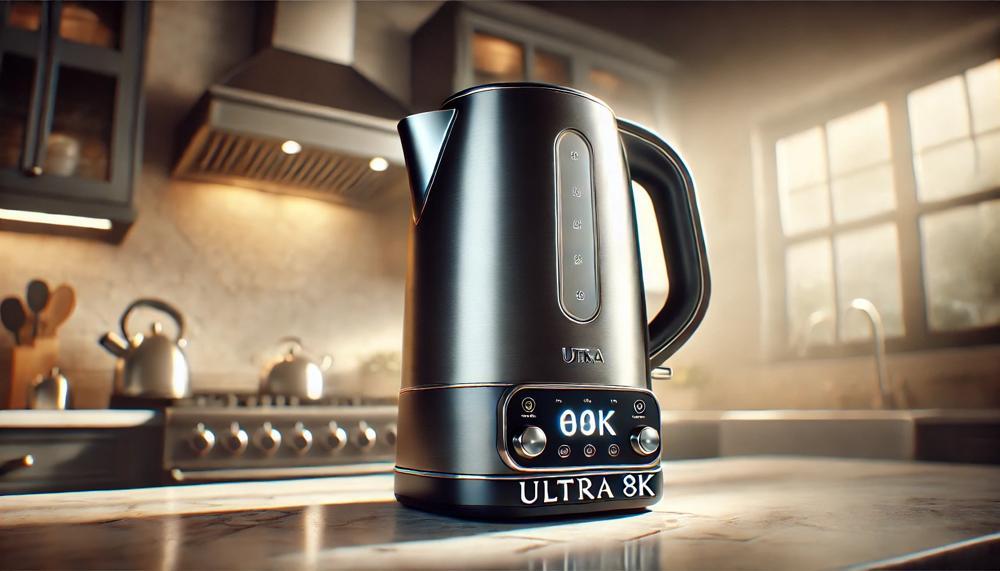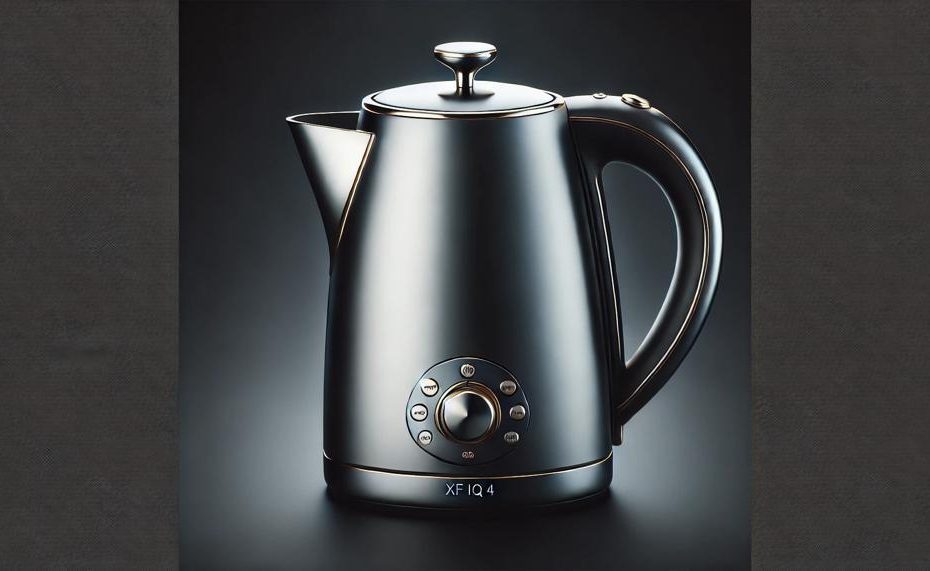Disposing of an old electric kettle can seem tricky, but it’s simpler than you might think. Whether your kettle has given up the ghost or you’ve upgraded to a snazzier model, proper disposal is key. First, consider recycling: take your kettle to a local recycling center or participate in a Responsible Appliance Disposal (RAD) program. Many centers accept small appliances and ensure they are processed correctly, avoiding environmental harm.
Alternatively, check if the manufacturer has a take-back program. Some companies offer incentives or even free servicing for appliances under warranty. If your kettle is still in working order, think about donating it to charity or selling it online through second-hand platforms.
Remember, never toss your kettle in the trash or household recycling. It contains electronic components that require special handling.

Key Takeaways:
- Recycle at a local center or through a RAD program.
- Check for manufacturer take-back programs and incentives.
- Donate or sell if the kettle is still functional.
- Avoid throwing it in the trash or regular recycling.
Stay tuned for more tips on each disposal method and ensure your old kettle finds a new home or gets recycled responsibly.
Contents
Can a Kettle Go in the Bin?
The short answer is no, it is not safe to dispose of an electric kettle in the regular household trash bin. Disposing of an electric kettle improperly can lead to environmental harm and may violate local regulations on hazardous waste disposal.
Environmental Impact
- Electric kettles contain electronic components and potentially hazardous materials that can leach into the soil and water, causing pollution and harm to wildlife.
-
Local Laws and Regulations
- Many regions have specific rules for disposing of electronic waste (e-waste). Tossing an electric kettle in the regular trash can result in fines or penalties.
Recycling Options
- Recycling Centres: Take your kettle to a local recycling centre that handles electronic waste.
- Appliance Disposal Programs: Participate in a Responsible Appliance Disposal (RAD) program.
- Manufacturer Returns: Some manufacturers offer take-back programs and incentives for recycling old appliances.
Alternative Disposal Methods
- Donation: If the kettle is still functional, consider donating it to a charity.
- Online Sales: Sell it on second-hand websites to extend its useful life.
Can You Put a Kettle in the Dishwasher?
No, it is not safe to put an electric kettle in the dishwasher. Even if you separate the stainless-steel kettle from the electric base, dishwashers can damage both components.
Why Electric Kettles Should Not Be Placed in Dishwashers:
- Electrical Components: The electric base contains sensitive electrical parts that can be ruined by water. Immersing these parts can lead to malfunctions or pose a fire hazard.
- Heat Damage: The high temperatures and harsh detergents used in dishwashers can degrade the kettle’s materials. Rubber seals, plastic parts, and coatings can warp or wear out faster.
- Manufacturer’s Instructions: Most manufacturers advise against placing electric kettles in dishwashers. Ignoring these instructions can void warranties and lead to costly repairs or replacements.
Recommended Cleaning Methods:
| Part | Cleaning Method | Details |
| Exterior | Wipe with damp cloth | Use a mild detergent if necessary. Avoid submerging in water. |
| Interior | Hand wash | Descale with a vinegar solution or lemon juice, rinse thoroughly. |
| Electric Base | Dry cloth only | Ensure it remains completely dry. Avoid all liquids. |
Are Kettles Energy-Efficient?
Yes, kettles are generally energy-efficient. They are designed to heat water quickly and with minimal energy loss, making them a practical choice for households.
Their efficiency comes from the direct contact between the heating element and the water, ensuring that most of the energy goes directly into heating the water.
Are Kettles Bad For the Environment?
Electric kettles indeed have an environmental impact, primarily due to their energy consumption and the materials used in their manufacture. Here’s a closer look at how they affect the environment and the best disposal practices:
Environmental Impact of Electric Kettles
Energy Consumption:
- Electric kettles are significant energy users, contributing to household carbon footprints. While they boil water efficiently compared to stovetop kettles, the frequent and often excessive boiling of water can lead to substantial energy waste.
- Technological advancements are mitigating this issue, with newer models focusing on energy conservation.
Material Use:
- Many electric kettles are made from plastic, which poses environmental concerns due to its non-biodegradable nature. Stainless steel and BPA-free plastic models are better options for health and environmental reasons.
- The manufacturing process of electric kettles also involves a considerable amount of resources and energy, contributing to their overall environmental footprint.
Best Eco-Friendly Disposal Methods
Disposing of electric kettles responsibly can mitigate their environmental impact. Here are the best practices:
| Method | Description | Benefits |
| Recycling Programs | Participate in local electronic recycling programs that handle small appliances. | Recycling helps reclaim valuable materials and reduces landfill waste. |
| Manufacturer Take-Back | Some manufacturers offer take-back programs for their products. | Ensures proper disposal and recycling according to industry standards. |
| Donate | Donate functional kettles to charity shops or shelters. | Extends the kettle’s lifecycle, reducing the demand for new products. |
| Repair and Reuse | Fix minor issues and continue using the kettle instead of replacing it. | Minimizes waste and maximizes the appliance’s utility. |
What to do With a Broken Electric Kettle?
Disposing of a broken electric kettle can be done in several eco-friendly and responsible ways.
| Disposal Method | Description | Additional Information |
| Recycling Centre | Take the kettle to a local centre for electronic waste recycling. | Find your centre |
| Appliance Disposal Programs | Participate in programs that ensure responsible disposal of appliances. | Contact local recycling centres for details. |
| Return to Manufacturer | Return the kettle to the manufacturer for possible discounts or incentives. | Check manufacturer websites for return policies. |
| Charity Donation | Donate functional kettles to charity shops or shelters. | Ensure the kettle is in good working condition. |
| Sell Online | Sell functional or repairable kettles on platforms like eBay. | Broken kettles can also be sold for parts. |
| Warranty Check | Verify if the kettle is under warranty for free repair or replacement. | Review warranty details on manufacturer websites. |
| Avoid Household Trash | Do not dispose of the kettle in regular trash or household recycling bins. | Special handling is required to prevent environmental harm. |
Conclusion
Disposing of an old electric kettle is simpler than you might think, but it’s essential to do it right to avoid environmental harm. Firstly, recycling is a fantastic option. Take your kettle to a local recycling center or join a Responsible Appliance Disposal (RAD) program. These centers ensure proper processing, preventing environmental damage.
Another route is checking for manufacturer take-back programs. Some companies provide incentives or free servicing for appliances under warranty. If your kettle still works, consider donating it to a charity or selling it online through second-hand platforms.
Remember, never throw your kettle in the trash or household recycling. Its electronic components need special handling. Proper disposal not only helps the environment but also aligns with local regulations.
Recycling centers and RAD programs provide eco-friendly disposal, manufacturer returns offer potential benefits, and donating or selling keeps the appliance in use.





